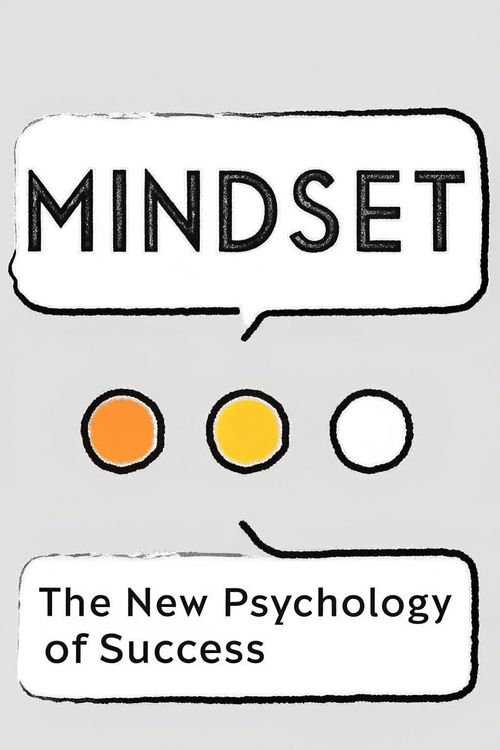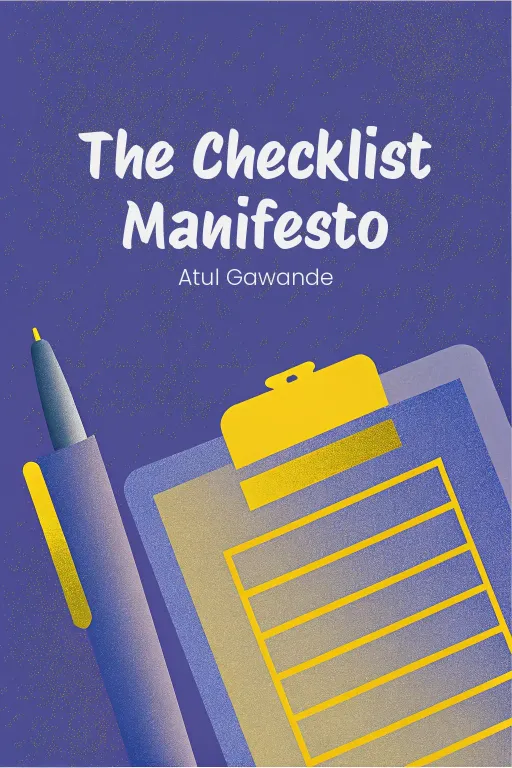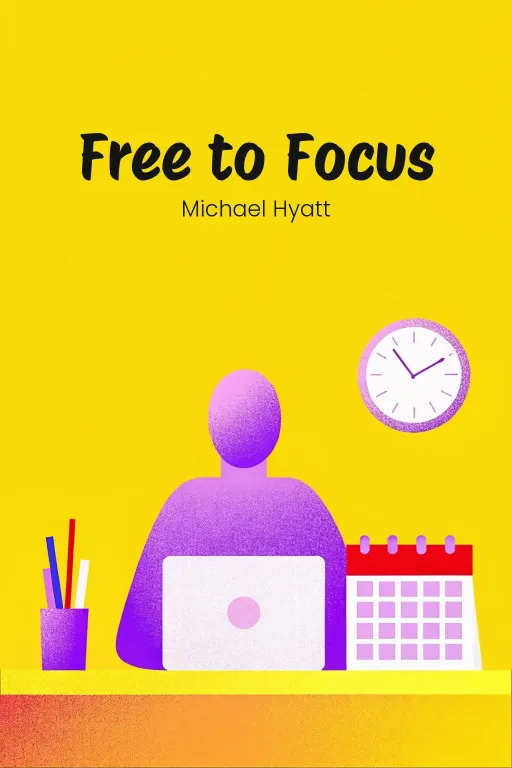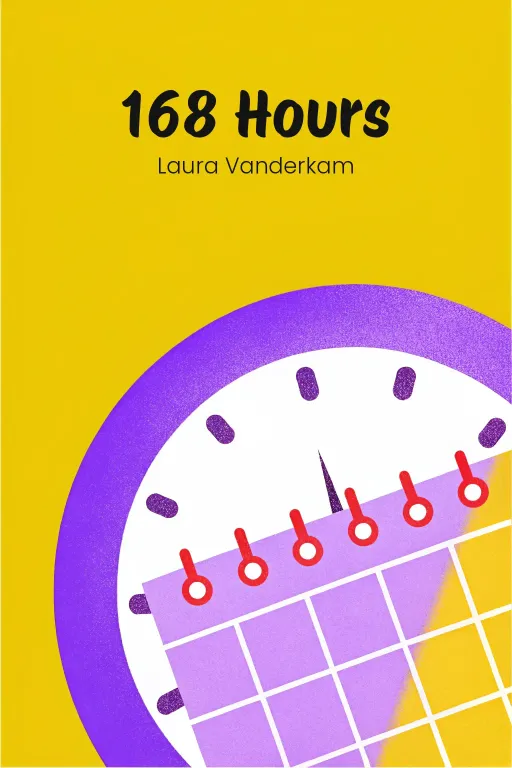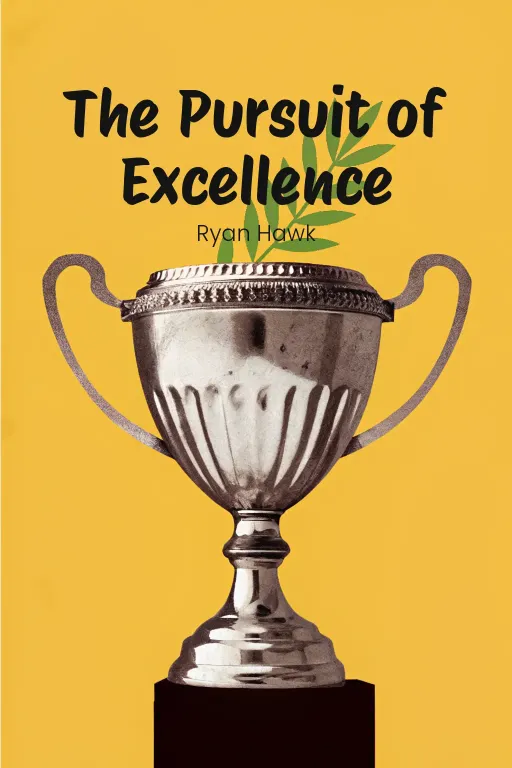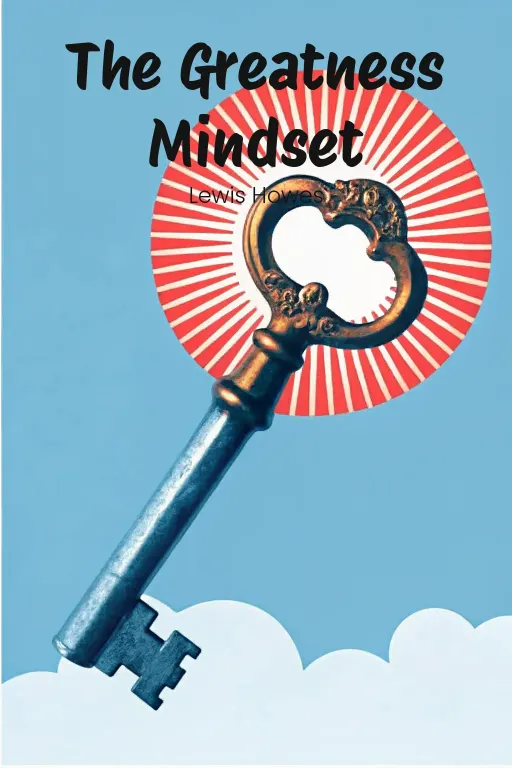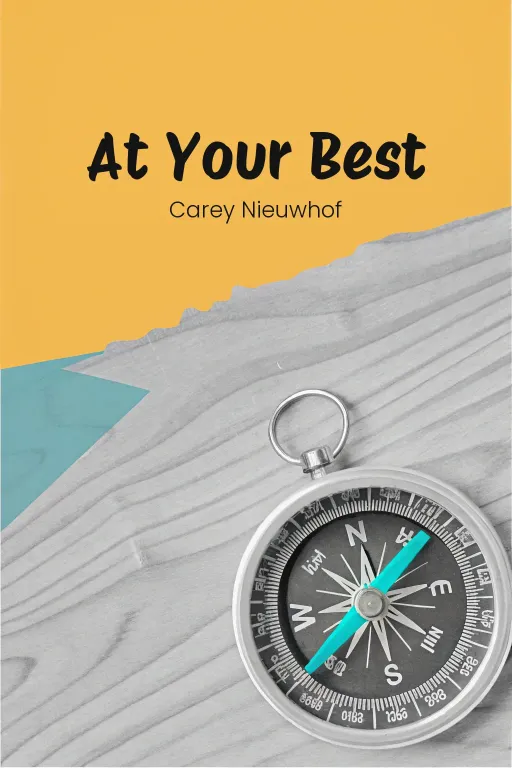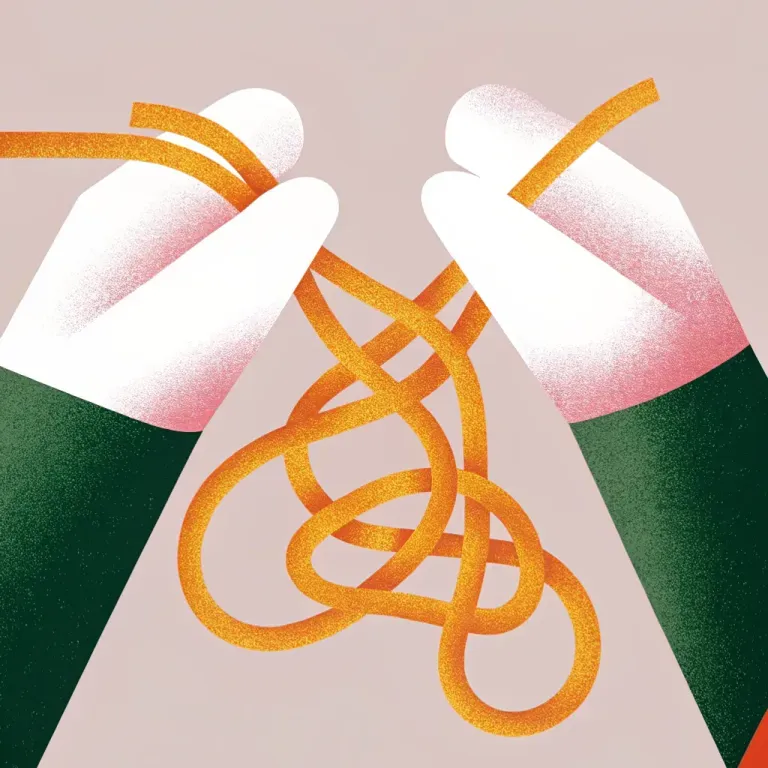
Quit Smart: Your Path to What Truly Matters
Podcast by Beta You with Alex and Michelle
A Little Book That Teaches You When to Quit (and When to Stick)
Quit Smart: Your Path to What Truly Matters
Part 1
Alex: Hey everyone, welcome to the show! Let's dive right in with a question I think we've all wrestled with: Have you ever felt totally stuck, you know, in a job, a hobby, or even a relationship, and just thought, "Is this it? Should I just cut my losses?" Michelle: Oh, without a doubt. I mean, hasn’t quitting always been framed as the ultimate failure? We're constantly bombarded with sayings like, "Winners never quit, and quitters never win," right? Alex: Right! But that's exactly the myth that Seth Godin tackles in his book “The Dip”. He basically turns that whole idea on its head, arguing that quitting strategically can actually be the smartest path to success. The trick, he emphasizes, is being able to tell the difference between a "Dip"—that tough slog where the struggle actually leads to growth—and a "Cul-de-Sac," where you're just spinning your wheels and wasting time. Michelle: So, “The Dip” is essentially a survival guide for figuring out when to persevere and when to bail? Alex: Precisely! And that’s what we’re going to explore today. First, we’ll really break down what a Dip is and why pushing through it is key to becoming truly exceptional. Then, we’ll get into the nitty-gritty of strategic quitting—how do you actually recognize when it’s time to walk away from something that's going nowhere? And finally, we’ll look at how these principles can help you ditch the mediocre and really focus your energy on what counts. Michelle: Sounds like a solid plan for dodging life’s dead ends and maybe, just maybe, finding the express lane to success. Alright, let’s get started.
Understanding The Dip
Part 2
Alex: Exactly, so let's start by understanding what "the Dip" actually is. According to Seth Godin, the Dip is that inevitable rough patch that happens in any worthwhile pursuit. It's when the initial excitement fades, and you're faced with challenges, self-doubt, and plain exhaustion. Think of it as a test, a proving ground, to see who's really serious about making it through to mastery. Michelle: So, the Dip is basically the grind, where everything just feels way harder than it should. But what sets it apart from, say, everyday struggles? How do we actually know if it's leading somewhere worthwhile? Alex: That's a great question. The Dip isn’t just any old struggle; it’s a “purposeful” struggle. It's the kind of effort where, if you stick with it, the payoff can be huge. Imagine climbing a really steep mountain – those exhausting parts in the middle are what make reaching the top so rewarding. Godin argues that the Dip acts as a filter, separating those who are willing to endure that hardship from those who give up too soon. It’s the people who persevere, even when every fiber of their being is telling them to stop, who ultimately distinguish themselves as the best in their field. Michelle: A filter, huh? Okay, but what if you're, I don't know, applying for jobs and you've sent out a hundred résumés and heard absolutely nothing back. How do you know if you're in the Dip, or if you're just wasting your time on something that's never going to work? Alex: That's such a relatable example! Job hunting is a perfect Dip scenario. Think about someone who's gone through five rounds of interviews but still hasn't gotten an offer – pretty disheartening, right? That emotional strain is the Dip testing your resolve. But if you can see small signs of progress – like getting closer to interviews at bigger companies, or even improving your interviewing skills – that's a good indication that the Dip is worth pushing through. You're building momentum, even if it doesn't feel like it in the moment. Michelle: So it’s about spotting those little hints that you’re on the right path? That makes sense. But let's flip it around – when does that job hunt turn into what Godin calls a Cul-de-Sac? Is that just a fancy way of saying, "Stop doing stuff that isn't working"? Alex: Well, it is, but it's a bit more nuanced. The Cul-de-Sac isn't just about effort going nowhere, it’s about a total lack of potential for progress. Imagine a garage band that plays the same three small venues over and over, month after month, without ever growing their audience or evolving their music. It's not that they aren't working hard; they're just stuck in a cycle that doesn't lead anywhere significant. That's a Cul-de-Sac—a situation with no real potential for improvement, no matter how much effort you put in. Michelle: Oof, that sounds hauntingly familiar. So, unlike the Dip, there’s no light at the end of the tunnel in a Cul-de-Sac? Alex: Exactly, and it's crucial to recognize the difference. A Dip signals a future reward for persistence, while a Cul-de-Sac signals futility. The key is to be honest with yourself and cut your losses in anything that isn’t showing signs of growth. Godin says that winners are quick to quit things they identify as Cul-de-Sacs, freeing up their time and energy for better opportunities. Michelle: Alright, I'm following so far. So, if powering through the Dip leads to greatness, I guess there must be some kind of secret sauce for getting through it? Like, what's the key to not giving up when things feel unbearable? Alex: Great question! This is where mindset becomes really important. Godin offers several tools for navigating the Dip. First, you need to ask yourself the right questions up front: Is this Dip leading to something you truly care about? Can you picture the rewards of getting to the other side, and do those rewards align with your long-term goals? If the answer is yes, it’s worth sticking with. Michelle: Yeah, but asking the right questions only takes you so far. What happens when you're in the thick of it, and quitting feels… well, a lot easier than pushing on? Alex: That’s where focus comes in. Godin emphasizes that the Dip requires focused effort. You can’t get through it if you're distracted or trying to do too many things at once. By cutting out distractions and committing your resources – your time, energy, and attention – to the thing that really matters, you'll become more resilient when things get tough. Michelle: So it’s not just about persevering; it’s about choosing your battles wisely and going all-in on the ones that really matter. But what if you’re working hard, and the road still seems incredibly long? Is there a way to stay motivated when you feel like you're not making any progress? Alex: Absolutely! This is where the idea of measuring incremental progress comes in. Even in the depths of the Dip, small wins—whether it's learning a new skill, gaining clarity on your goals, or receiving some positive feedback—can be evidence that you're moving forward. Those small signs of forward momentum can keep you motivated to continue. Michelle: Alright, I'm starting to see the bigger picture here. The Dip isn't just a struggle; it's about strategizing, finding the right kind of struggle, and sticking with it long enough to see the rewards. But I can’t help but wonder, is it really that simple? I mean, let’s take the snowboarders Godin mentions. Sure, the ones who persevere eventually master the slopes, but what separates them from the thousands who wipe out and never go back? Alex: That’s a great example. Again, it comes down to mindset—the willingness to see failure as part of the process. The snowboarders who master the sport don’t let the falls or frustrations define them. Instead, they see those challenges as stepping stones, a necessary part of their growth. For Godin, it's this perseverance, this willingness to embrace the discomfort of the Dip, that sets winners apart. Michelle: Bottom line then: the Dip isn’t about suffering for suffering’s sake. It’s about filtering out mediocrity, focusing on high-reward endeavors, and doubling down on the ones truly worth your time. And when that payoff finally comes, it’s not just success—it’s success that feels earned.
Strategic Quitting
Part 3
Alex: Okay, so once we get what the Dip “is”, the next thing is figuring out how to actually “deal” with it, right? And that's where strategic quitting comes into play. It's not about just throwing in the towel when things get a little tough. It's about consciously deciding to shift your focus and resources. We’re building on the idea of the Dip and giving you real ways to make quitting work “for” you, to help you actually achieve your goals. Michelle: Alright, so we're not just talking about knowing the map anymore, we're talking about how to drive. Honestly, Alex, this whole “strategic quitting” thing sounds both amazing and kinda scary. We're taught that quitting equals failing, right? So, how does Godin say successful people use quitting to their advantage? Alex: Exactly! And that’s why his take is so eye-opening. He basically says quitting is a smart move, not some sign of weakness. It's about making choices that empower you and keep you focused. The winners, you know, they quit fast and they quit often, but only when it's obvious that things just aren't going anywhere. They don't waste time on stuff that doesn't fit into their big picture or doesn't have real potential. Michelle: Okay, I get it. It's not "I quit because I'm lazy," it's "I quit so I can put my energy where it matters". But how do you even start figuring out what's worth it? Is it just a simple pros and cons list, or is it more complex than that? Alex: Oh, it's way more complex. Godin has some key tools and questions to help you decide whether to stick it out or bail. One big one is asking yourself, "Am I actually making progress here?" Really measuring what you’re doing, seeing if it's leading to new skills, bigger opportunities, or even just getting better at something. And if it's not, you need to seriously think about whether you're stuck in a Cul-de-Sac or maybe even heading for, like, a disaster, right? Michelle: Right, so focus on real, measurable progress, not just good feelings or wishful thinking! That's solid advice. But what if someone's super attached to something, even if it's failing? We all know people in dead-end jobs or clinging to businesses that should have shut down ages ago. Alex: Okay, that’s where you need to be super honest with yourself, and keep your ego in check. Godin stresses that holding on just because you're scared of failing or because you've already put so much in is a major trap. That's the sunk-cost fallacy, right? Throwing good money after bad. The winners see quitting as a chance to free up resources for something better. Michelle: That makes sense. So, instead of, say, blowing all my money on a restaurant that's going nowhere just because “I've come this far," I should be smart enough to cut my losses and maybe start a food truck instead. But let me push back a little – how do I avoid quitting too soon, though? So many success stories are about sticking it out, no matter what. Alex: That’s what’s so great about Godin’s way of thinking. Sticking with something is only great if that Dip actually leads somewhere good. Take the artist in the book, right? She stopped wasting time on a painting series that wasn’t working and started exploring a new style that fit her skills and vision better. The key was knowing when to stop and strategically quit so she could focus on something that had real potential. It's that ability to change course, not just stubbornly hang on, that sets winners apart. Michelle: Okay, pivoting sounds good, but hold on a sec. That artist's move probably seemed smart “after” she did it, but wasn't it scary at the time? Quitting has so much uncertainty—how do you know you're not messing up big time? Alex: Oh, for sure, there's always going to be some uncertainty, but that’s why strategic quitting involves taking it step by step. First, you really have to think about whether your goals match what you're actually doing. If you realize that no matter how hard you work, you're just spinning your wheels, then quitting isn't a mistake – it's actually clarity. And remember, quitting doesn’t always mean stopping completely; sometimes it’s just shifting your approach or changing gears. Michelle: Right. And what about worrying what other people will think? I mean, quitting can sound like “failure” to your boss, your colleagues, even your friends. How do you deal with that? Alex: That’s a massive point. We’re all trained to finish what we start, right? Grit for grit’s sake. But Godin challenges us to forget about what people think and focus on what we’re actually getting out of it. If quitting frees you up to do something amazing, does it really matter what anyone else thinks? The winners focus on outcomes, not appearances. Michelle: Fair point. And I guess we can learn from failures too, like Kodak. Talk about holding on to the wrong thing for way too long! They just couldn’t accept that film was dying, and their refusal to change basically killed them. Alex: Exactly. Kodak is the perfect example of how not quitting outdated strategies can lead to something worse than failure—irrelevance. Now, think about Google’s early days in the search engine world. They had serious competition, but they knew those battles were worth fighting because success would make them innovators. They pushed through a Dip, and look where they are now! Michelle: So Kodak clung to what they knew and faded away, while Google chased the future. I get it. That really shows Godin’s point: the tough part about quitting isn’t just spotting what’s not working; it’s having the guts to actually go after something better. Alex: Totally. And that courage comes when you start seeing quitting as a strategic tool. It’s not about running away, it's about regrouping and putting your energy where it really counts.
Becoming Extraordinary
Part 4
Alex: So, with the ability to strategically quit, we can really focus on nurturing persistence in the “right” areas. Which brings us to today’s topic: “Becoming Extraordinary”. It's about taking these ideas and applying them more broadly, showing how this whole "Dip" concept and strategic quitting can lead to long-term success and personal fulfillment. Michelle: Okay, Alex, so now we're going from simply surviving the Dip to actually thriving in it, kind of breaking away from just being average and, as Seth Godin might say, becoming "extraordinary." But here's my question: is chasing the extraordinary “really” that important? Isn’t it enough to just, you know, stay afloat and be reasonably good at something? Alex: Well, Seth Godin actually addresses that. Being mediocre, it just kind of fades into the background, especially today, with everyone competing for attention. The big rewards go to the exceptional people—the best in their specific area. Think about it: the top 1% in almost any field make way more money and get way more recognition than everyone else combined. That's mostly because they've become rare and valuable in a crowded field. Michelle: So, it’s not just about being good, it’s about being both scarce and in high demand. This idea of scarcity almost sounds a bit exclusive. How can ordinary people actually become extraordinary? Alex: It all starts with really understanding the principles of the Dip. Godin believes that anyone who's willing to push through the tough parts of honing a skill, building expertise, and sticking with it when others give up can become extraordinary. Scarcity happens when people get through the Dip—because honestly, very few actually do. Think about marathon runners, for instance. Michelle: Oh, here we go with the marathon runners again! Let me guess: it's not about who's at the starting line, but who's still standing—or running—after, say, mile 20, right? Alex: Exactly! At the beginning, everyone's excited, energized, and ready to finish. But as the race goes on, you start seeing fatigue, pain, and that little voice of doubt creeping in. That middle part—the Dip—thins out the crowd. The people who keep going and push through the discomfort, they don’t just finish; they become part of that exclusive group. And that's valuable because so few people make it. It's the same idea in any field: sticking with something when most people quit creates scarcity, and scarcity makes you more valuable. Michelle: Alright, but becoming extraordinary can’t just be about pure grit, right? I mean, it's got to be more than just toughing it out longer than everyone else. Alex: You're right, it's not just about perseverance. It's also about choosing the “right” Dips to push through. Godin argues that not every challenge is worth your time or effort. The marathon runner image is effective because the ending goal – finishing line – is meaningful, measurable, and rewarding. But, imagine if someone spends years grinding in a career path they feel no passion for, or a project with zero future breakthrough. That’s not the Dip; that’s a Cul-de-Sac in disguise. Michelle: So, the magic formula is—or let me see if I’m following—it's about having the toughness, and combining that with making smart, strategic calls about where you direct your energy? Alex: Exactly. Godin argues that extraordinary success “really” hinges on being able to focus on the high-value challenges. He gives examples, like J.K. Rowling. Remember her story? She was rejected over a dozen times for Harry Potter. Most people might have given up after that, but Rowling believed in her story. She picked the right challenge—not because it was easy, but because it matched her strengths, her vision, and the possibility of creating something unique. Michelle: Can we just stop for a second to think what kind of persistence that would take? A dozen rejections! I would’ve probably burned the manuscript after rejection number three. But you’re right—she knew the payoff was worth it, so she stuck with it. It must take serious clarity to know when to stay the course. Alex: Absolutely, and that clarity comes from figuring out if what you're doing has the potential for big, extraordinary rewards. Rowling’s journey is a great lesson in resilience and alignment—she wasn’t chasing fame or approval; she “really” believed in her work and that it would resonate with people. And that's “really” the secret to getting through the Dip: it's not just about the hard work itself, it’s about envisioning the extraordinary result on the other side. Michelle: Okay, here’s a curveball for you, Alex. What happens when you're simply in a situation that’s too intense? A person can just find themseleves in over their head. If you commit to the wrong Dip, will it lead you to failure? Alex: That's a valid point, and it goes back to Godin's advice of being deliberate and informed about your choices from the beginning. Before you jump into a challenge, he suggests you ask yourself: "Does this align with my strengths and passions? Does it have meaningful potential in the long run? Is success hard enough to achieve that it will be valuable?" If you can answer "yes" to all of these, then the Dip isn't just a gamble; it’s an investment. And if the answer is "no," it’s best to quit early, and focus your efforts to something more aligned with your goals. Michelle: But let’s be honest, even if you’ve picked the “right” Dip, it’s still easy to burn out, especially when setbacks hit hard. How do you keep the fire alive when things just get rough? Alex: That's when resilience becomes so important. Godin says resilience is what makes greatness possible—it’s about getting through tough times while still keeping your eye on your vision. Think about Apple. They were almost bankrupt in the late 90s! It would have been so easy to just give up, cut their losses and stop trying. But with Steve Jobs, they focused on innovation and wanted to simplify their product, and that resilience turned Apple from being on the brink of failure to a global success. Michelle: And they didn’t just survive, they were transformed. I guess that’s the point: Resilience isn’t just about weathering the storm—it’s about using it as a catalyst for change and growing stronger. Alex: Exactly, resilience turns problems into growth, and persistence keeps you on track. They allow you to become extraordinary. It's about seeing every setback as a chance to learn, adapt, and develop, in a way that fits with what you want to achieve overall. Michelle: So we’ve got scarcity, high-value challenges, and resilience as these pillars for achieving greatness. But how do you maintain this momentum for the long haul? There’s got to be a difference between one exceptional moment and continuously performing at a high level. Alex: Sustaining excellence requires a growth-oriented mindset. One of the most important ideas from Godin is that the Dip isn’t just something you survive. It's how you develop mastery. Michael Jordan, for example, didn’t become an icon by one game win; he kept refining his skills and treating every failure as a chance to improve. It’s this focus on constant growth that changes temporary success to long-lasting greatness. Michelle: So it’s not just about getting through one Dip, it’s being ready to face whatever comes next, and then the thing after that. Almost like every great achievement just prepares you for a bigger challenge ahead. Alex: Exactly. Becoming extraordinary is not “really” about reaching this destination as much as it is embracing an ongoing journey. It's recognizing that each dip creates some experience and expertise that sets you up for new rewards. Michelle: Okay, I’m convinced. It’s not just about the grind—it’s about making smart choices, being resilient, and a relentless focus on growth.
Conclusion
Part 5
Alex: Okay, so to bring everything together, Seth Godin's “The Dip” really pushes us to rethink how we see quitting and, you know, sticking with things. We've explored how the Dip is actually a deliberate struggle, right? It's what leads to mastery. As opposed to those Cul-de-Sacs—those dead ends that just drain our time and energy. The trick is, figuring out when to “really” push through, and when to strategically bail. Michelle: Right, and the whole point is to laser-focus on those high-value challenges, the ones where you can actually shine and become, dare I say, extraordinary. It's about being tough, being efficient, and making sure what you're doing actually matters to you. Alex: Exactly! So, here's the big lesson: Being willing to handle that uncomfortable part of the Dip, and also having the guts to walk away from those dead ends? That's what sets apart the best from everyone else. So ask yourself, are you putting your energy into something that could “really” go somewhere? Or are you just kind of spinning your wheels? Michelle: Because, when you get right down to it, it’s not just about quitting or not quitting. It's about building a life that is all about growth, purpose, and making a real impact. So, pick your battles carefully and don’t be afraid to strategically quit. it might be the best move you ever make.


